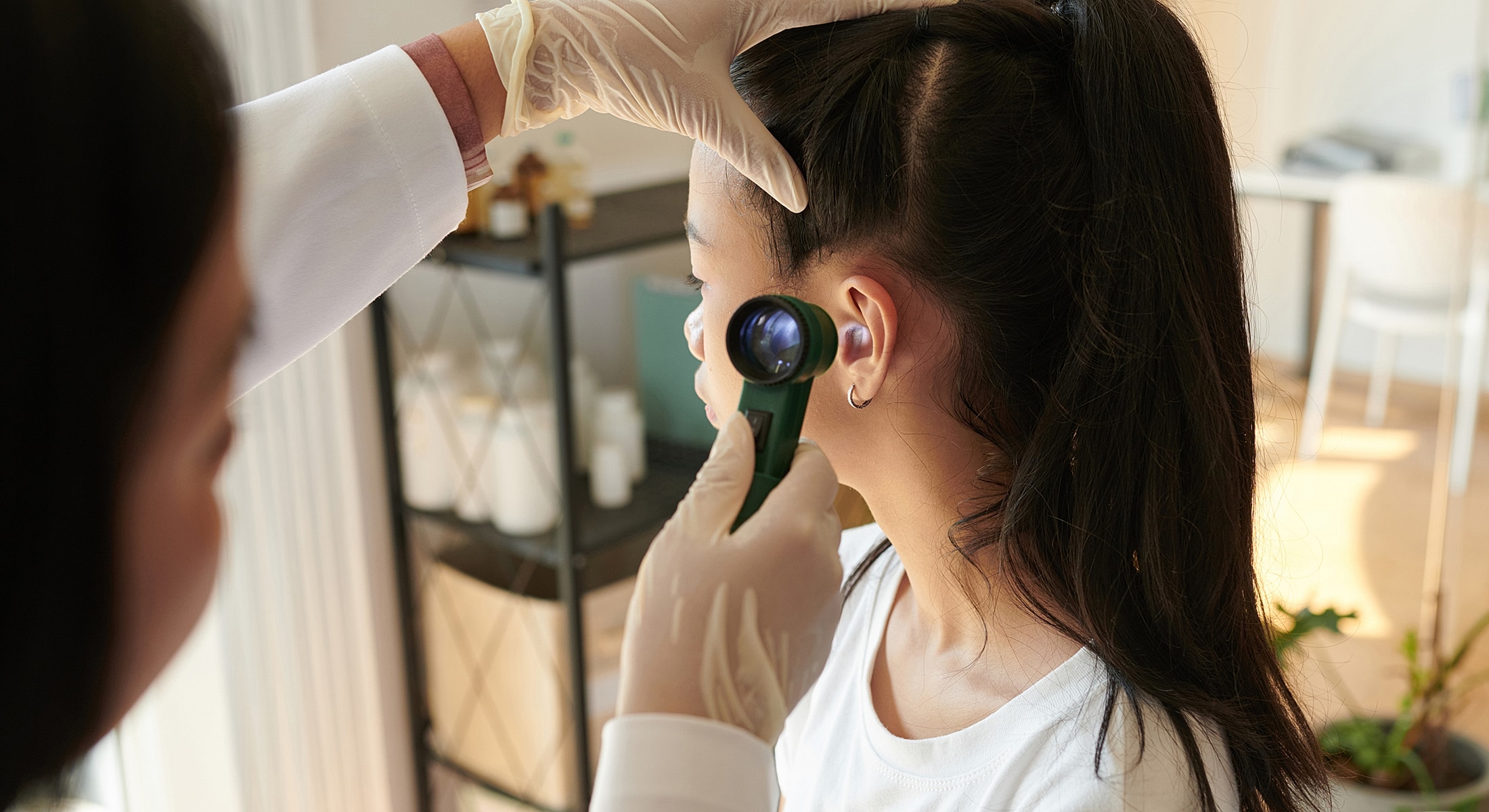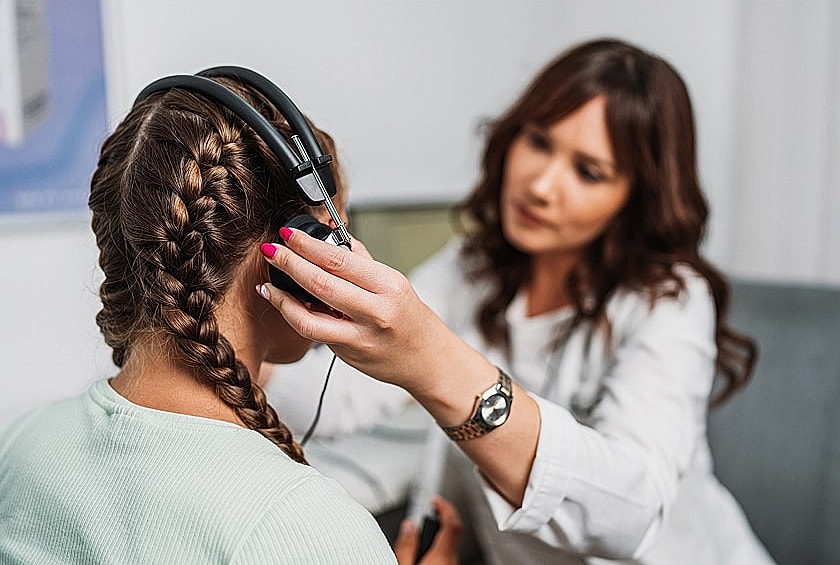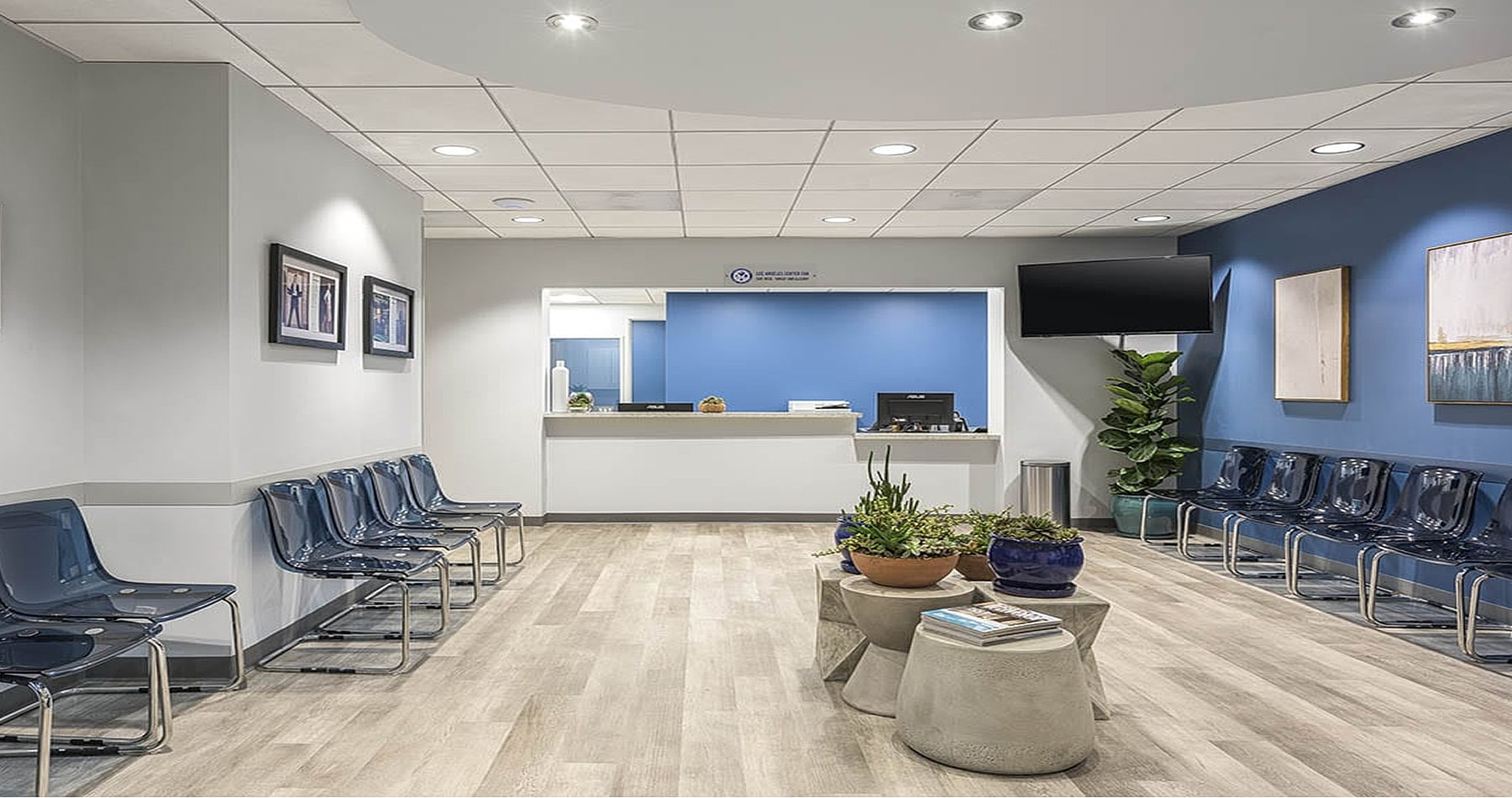Our team of audiologists and ENT specialists offers thorough hearing tests for kids of all ages, using advanced tools to ensure accurate results. We make the process fun and stress-free in a welcoming environment.

















Hearing is essential to a child’s ability to learn, communicate, and connect. Even mild hearing loss can affect speech development, classroom performance, and social confidence. If your child doesn’t always respond to sound, speaks less clearly than expected, or frequently asks for repetition, a pediatric hearing test can help uncover the cause and guide early treatment.
At the Southern California Center for Ear, Nose, Throat, and Allergy (SoCal ENT), our team offers comprehensive hearing evaluations tailored specifically for children, from newborns to school age. Using advanced diagnostic tools and a gentle, child-centered approach, our audiologists and ENT specialists make each visit comfortable and reassuring.
Our goal is to give parents clear answers and ensure every child has the best opportunity to reach critical developmental milestones through early, effective hearing care.





Pediatric hearing tests are designed to measure a child's ability to detect and respond to sound, using methods tailored to their age and developmental stage. Because infants and young children may not be able to describe what they hear, our audiologists use a combination of behavioral observations and objective testing to accurately evaluate their hearing.
At SoCal ENT, we offer a full range of pediatric hearing assessments for infants, toddlers, and young children. These tests help identify hearing loss, middle ear issues, or auditory processing concerns early, allowing for timely and effective treatment and supporting healthy speech and language development.
For infants up to about 7 months old, this test monitors a baby’s natural responses to sound—such as blinking, widening the eyes, or pausing during feeding—to assess early hearing ability.
Used for babies and toddlers, this method plays sounds through small speakers or headphones. When the child turns toward the sound, they’re rewarded with a fun visual cue, like a flashing light or animated toy, encouraging engagement and accurate responses.
Designed for preschoolers and young children, this approach makes testing fun by turning it into a game—like dropping a block in a bucket or pressing a button whenever they hear a sound. This technique helps measure hearing thresholds while keeping the child attentive and relaxed.
Older children typically undergo a standard hearing test. They wear headphones and indicate when they hear various tones at different frequencies.
Our tests are gentle, engaging, and effective. They ensure the most accurate results while keeping your child comfortable.
Pediatric hearing evaluations are designed to detect a variety of hearing and auditory processing conditions that can affect speech, learning, and overall development. These include:
Hearing loss present at birth that requires early diagnosis and prompt intervention to support speech and language milestones.
Ongoing fluid buildup behind the eardrum that can cause temporary or inconsistent hearing loss.
Frequent infections that may interfere with hearing clarity and slow speech or language development.
When a child can hear sounds but has difficulty understanding or interpreting them accurately.
Hearing changes caused by illness, high fevers, certain medications, or prolonged noise exposure.
By identifying these conditions early, SoCal ENT helps ensure children receive the treatment and support they need for healthy communication and learning.
A pediatric hearing test is an essential first step in ensuring your child's speech, language, and social development stay on track. Benefits include:
Identifies issues before they interfere with speech, language, or learning milestones.
Early treatment supports clearer speech, stronger listening skills, and better classroom participation.
Testing is interactive, age-appropriate, and designed to keep children relaxed and engaged.
Determines whether hearing loss is temporary (such as from fluid or infection) or permanent, guiding appropriate care.
Gives families a clear understanding of their child’s hearing health and personalized recommendations for next steps.
Detecting hearing issues early boosts your child's communication skills, paving the way to success in both social and academic environments.

A pediatric hearing test may be helpful if your child shows signs of difficulty hearing or understanding sounds. Early testing can identify issues that might affect speech, learning, or social interaction.
You may want to schedule an evaluation if your child:
At SoCal ENT, our specialists can determine whether your child’s symptoms are related to hearing changes and recommend the most appropriate next steps for treatment or monitoring.
After your child’s hearing evaluation, our audiologists will review the findings in detail and explain what the results mean for their overall hearing health. If any degree of hearing loss is identified, we’ll recommend the most appropriate next steps, which may include:
At SoCal ENT, every family receives a clear, individualized care plan designed to protect and enhance their child’s hearing while supporting long-term speech, learning, and development.
Detecting hearing issues early is crucial for your child's communication and learning success. At SoCal ENT, we offer specialized pediatric hearing evaluations in a nurturing, child-friendly setting.
Newborns typically undergo hearing screenings at birth. However, if there are concerns like speech delays or hearing issues later on, further testing is advisable.
Our tests are gentle and kid-friendly, making them suitable for children of all ages.
Evaluations typically last 30-45 minutes, depending on the child's age and their response.
If hearing loss is detected, we'll explore your treatment options, including medical care, hearing aids, and speech therapy if necessary.
Temporary hearing loss due to fluid buildup or infections often improves on its own, but permanent hearing loss requires ongoing care.